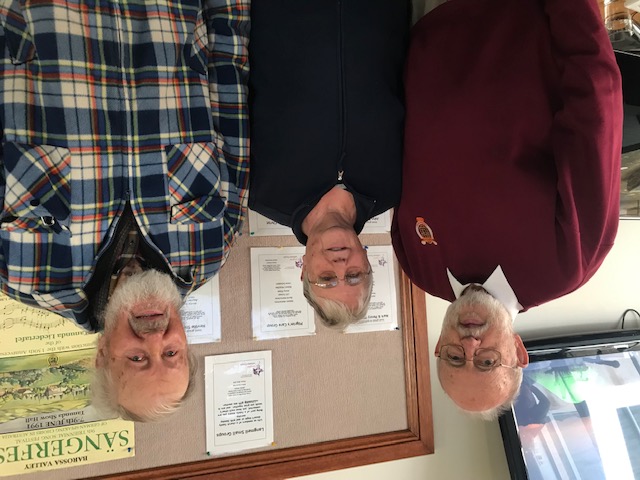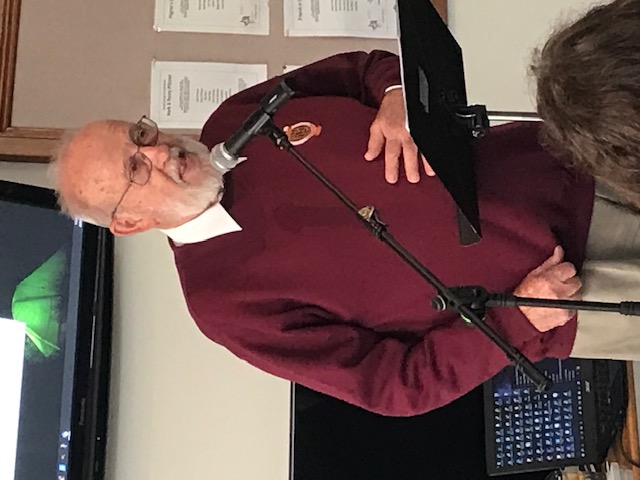by John Clarke
175 Years of Song in the Valley
The first reference to the Tanunda Liedertafel appeared in The South Australian newspaper on 10 January, 1851, indicating the formation of the all male choir took place in the previous year.
At the last meeting of the German speaking group Kaffee und Kuchen the guest speaker was the President of the Liedertafel, Pastor Wally Schiller. He began his talk by showing an excerpt from a 1962 film that featured the Liedertafel and concluded with the entire film. In between he discussed the history of the Liedertafel and the challenges that are being faced today.

The name Liedertafel has a long history. Lieder are short, popular German songs, and Tafel means table. It is thought that male friends in Silesia, Prussia and other Germanic regions came together, sat around a table eating and drinking, and as the evening drew on, burst into song. It has even been suggested that the original companions saw themselves as somewhat inebriated, latterday Knights of the Round Table.
Whatever its derivation the name has stuck, and it struck a chord with the early German settlers in the Barossa Valley. The hard working men needed respite and convivial company, and as their evening drew on, it was not surprising that the songs of their homeland (Heimat) burst from their well lubricated throats.
With its formal establishment in 1850 the Tanunda Liedertafel became the first all male choir in Australia and probably in the Southern Hemisphere. With continued immigration throughout the nineteenth century the popularity of the Liedertafel grew. Frequent concerts were held in the Barossa Valley, Gawler and
Adelaide, and in 1874 similar choirs joined with the Liedertafel in Tanunda for a Sängerfest (singing competition).
While young men left the Valley to fight for Australia in World War I (1914-1918) and World War II (1939-1945), prejudice forced the descendants of the early immigrants to become acutely conscious of their German roots, which after those wars may have given fresh impetus to Liedertafel membership. And as prejudice faded, the Liedertafel was celebrated.
The ABC broadcast and telecast the Liedertafel on several occasions, and in 1963 the choir performed for Queen Elizabeth II and the Duke of Edinburgh at Elder Park in Adelaide and in 2001, again in Adelaide, they performed for American President, Bill Clinton.
Today ageing membership and a decline in numbers are threats the Liedertafel is being forced to face. Post World War II migrants from German speaking regions have not felt the attraction to join, and the young men of the Barossa no longer feel so keenly the German heritage. And all male groups are increasingly criticised. And the songs themselves are a problem. Knowledge of German is necessary to sing meaningfully and
emotionally a German song, and few Liedertafel members today are fluent in German. More and more songs in English are being sung, which breaks the connection with tradition and the past.
The Tanunda Liedertafel is a Barossa Valley tradition, but can it adapt and survive for another 25 years?
The next Kaffee und Kuchen meeting will be held at the Langmeil Centre, 7 Maria Street, Tanunda on Monday, 30 June at 1pm.

